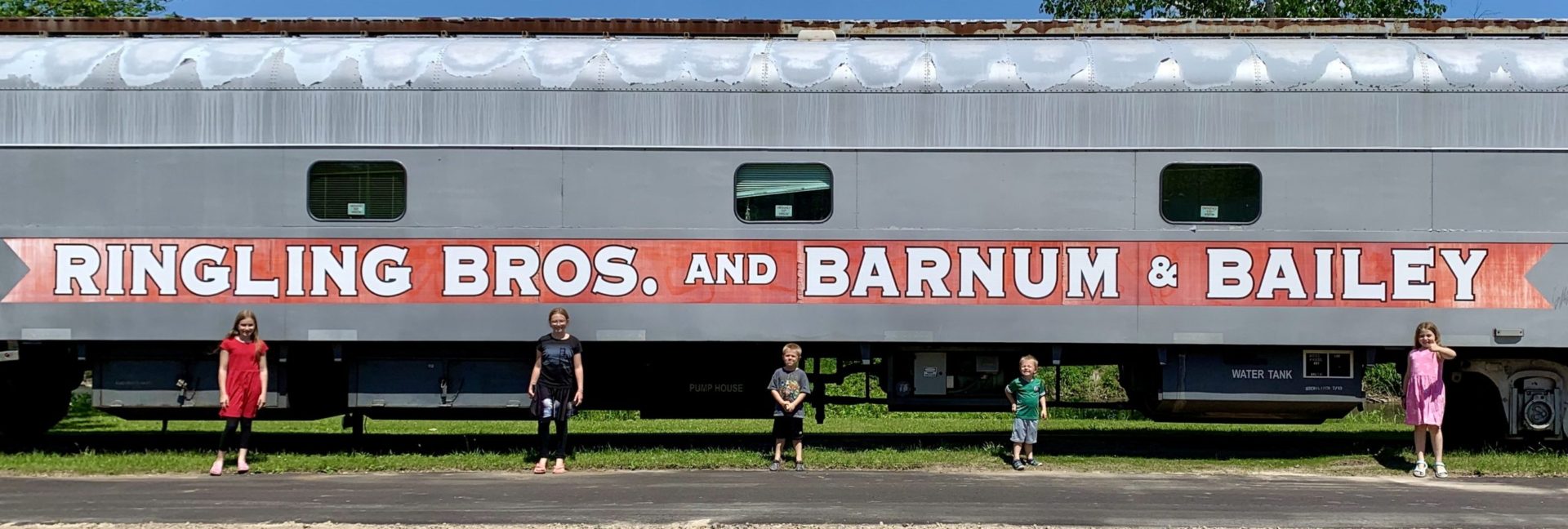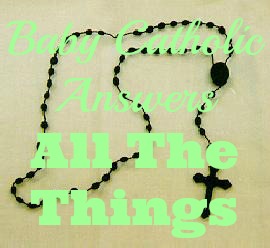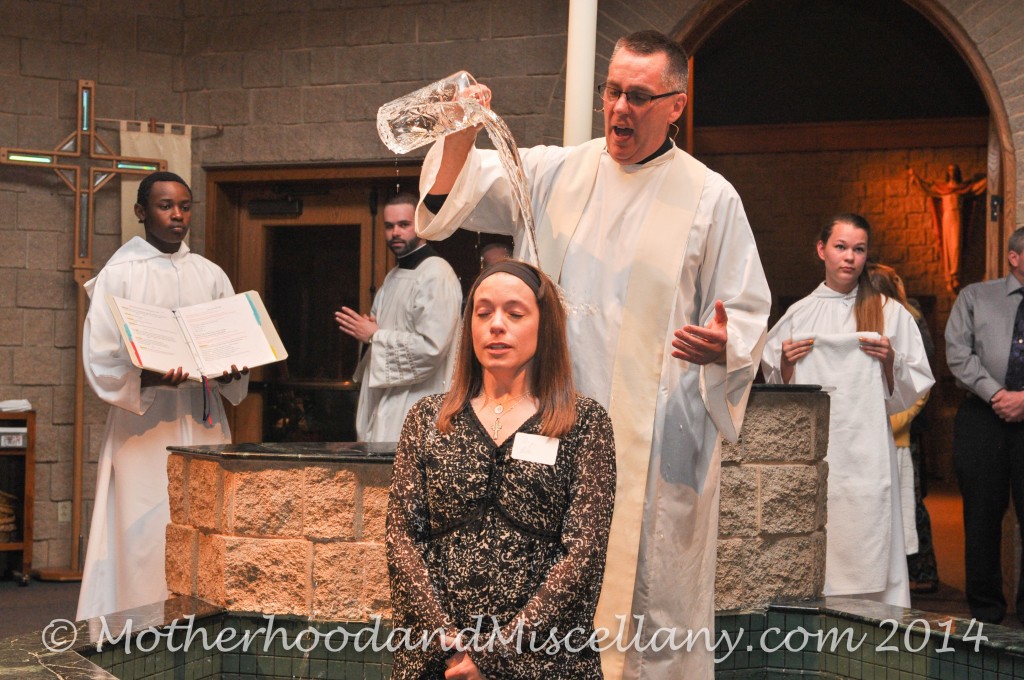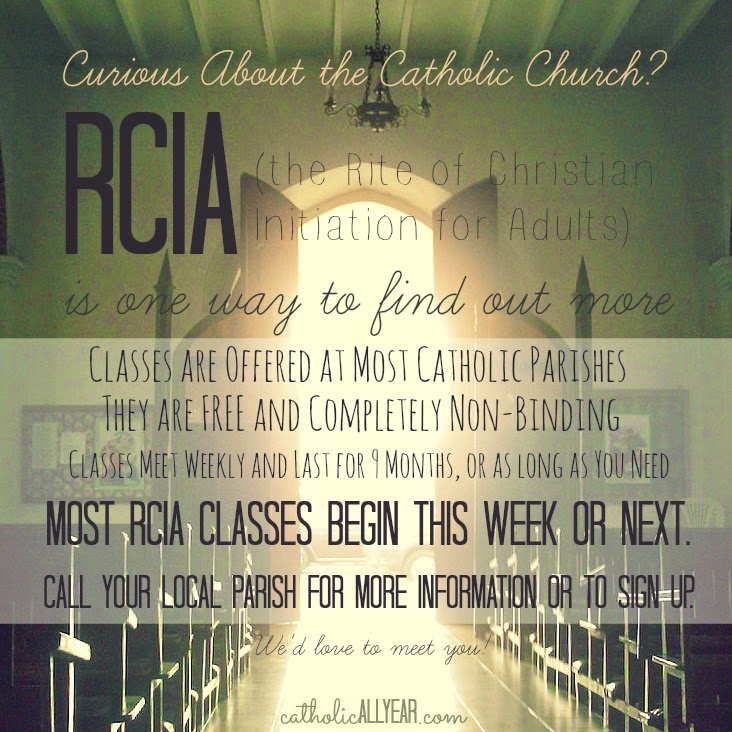No one asked me this question. But tonight is the start of the Rite of Christian Initiation for Adults (RCIA) at our parish, and I’m joining as a sponsor. So I’m going to answer this one just because I want to.
So. How does one become Catholic?
Lots of people get to start out that way. The “Cradle Catholic” is one who is born into a Catholic family. This person is Catholic from the start, but goes through a fairly typical process of receiving the sacraments gradually. First is the Baptism, usually within a few months after birth. Then there’s the first Reconciliation (confession) and First Holy Communion in the second grade. After this point, the child is able to receive the Eucharist at weekly Mass. The final step is Confirmation. This usually occurs between the ages of 13 and 16 (the other sacraments are Marriage, Holy Orders, and Annointing of the Sick, which not every Catholic will necessarily receive).
For converts, the path to full communion in the Church wan be widely varied. But converts do need to receive all the same sacraments as Cradle Catholics. These occur in a more condensed time period, mostly at the Easter Vigil Mass, held the night before Easter Sunday (for all but Reconciliation).
The Catholic Church does recognize baptisms performed within many other Christian denominations, so individuals who were previously baptized usually don’t need to receive this sacrament at the Vigil (like I did).
Adult converts who were baptized in another denomination will still have to make a first Reconciliation, usually at some point during Lent, and then will receive First Communion and be confirmed during the Vigil. Edited to add: a friend just informed me that sometimes the Church will even accept Confirmations from other denominations (i.e. Lutheran), so some people only receive First Communion at the Vigil when they convert.
So, what does a convert have to do to get to the point of being able to receive sacraments?
Basically, go through RCIA, which begins right around this time of year in most parishes. RCIA classes usually meet weekly, and in them candidates learn about Christianity in general and the Catholic faith in particular.
If they haven’t already, candidates begin attending weekly Mass, but they do not receive the Eucharist. For some people, the process of conversion may be relatively quick. In my case, I knew I wanted to become Catholic last summer. So I contacted my RCIA coordinator, began RCIA in September, and was baptized, received First Communion, and was confirmed in April. I felt sure it was the right thing for me.
For others, the process may take longer. Some people go through RCIA and still aren’t sure, so they take more time before deciding to enter the Church, maybe even going through RCIA more than once. Attending RCIA does not constitute any sort of obligation to become Catholic.
Thanks to Kendra of Catholic All Year for letting me use her image here
You can also read more detailed information here. But, if you think you might want to become Catholic, or you’d like to learn more, contact your parish to get more information about RCIA. Taking that step was one of the best things I’ve ever done.
********
Still taking your questions for more Baby Catholic posts. I have a few in the works, but I’m happy to try my hand at answering yours too!




